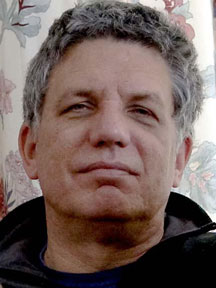|
|
Tom Weidlinger Director Statement: My work deals with a wide range of subjects, from the emotional development of boys in the United States to humanitarian aid in the Congo. Though the themes of social justice and human relations run through all my films, I make a point of starting with a blank slate on each new project, in a field or subject area in which I have no strong biases or an ax to grind. There then follows an intensive period of study and research during which the outlines of several potential issues and/or stories appear. Finding willing subjects whose words and experience can bear witness to the issues further guides the creative process of deciding exactly what the film will be about. I gravitate towards people who are doing interesting work, who are swimming against the tide or reaching across cultural and political divides and thereby defying easy categorization. I don’t turn away from the injustices of the world, but I’m not drawn to blowing the lid off scandal, corruption, and the excesses of power. I am not good at catching bad guys red-handed, and I am possibly too jaded to think that another story portraying people as victims will make a difference in righting their sufferings. I prefer to look for people whose struggles inspire me, and whose examples give me hope. A man swimming 300 miles down a river to call attention to environmental issues, aid workers in the Congo who learn it’s useless to feed the starving without giving them a better way to feed themselves, an Indian sports hero whose real accomplishments transcend his fame and his medals. Once I find the subjects, people, and events that seem to offer the promise of a good story, I still have to figure out what that story is and how to tell it. This is the biggest challenge and the main thing that most viewers don’t understand about documentary filmmaking. Stories don’t just tell themselves because the filmmaker fortuitously “catches” the story and tells it. The filmmaker is not a conduit recording words, sounds, and pictures to be stitched together in a more or less compelling approximation of “what actually happened.” That may be a good definition of news reportage but, even so, it’s a little dangerous, because it makes unspoken assumptions about truth and objectivity. There is no “what actually happened” – or rather there are a myriad versions can be told without actually lying. Filmmakers and journalists always manipulate “reality,” either consciously or unconsciously. I aim for transparency in my films, inviting viewers to go on a journey with me – a journey that begins with certain stated assumptions, but which often ends up (if one does not cling to tightly to those assumptions) with entirely different conclusions. I have never made a film that turned out the way I expected it to. Twists, turns, and surprises – and what I learn from them – are the reasons that I keep doing what I do.
|
|
|
|
|
A Moira Productions Film in association with Dateline Productions, © 2008, Lillian Lincoln Foundation |
|
